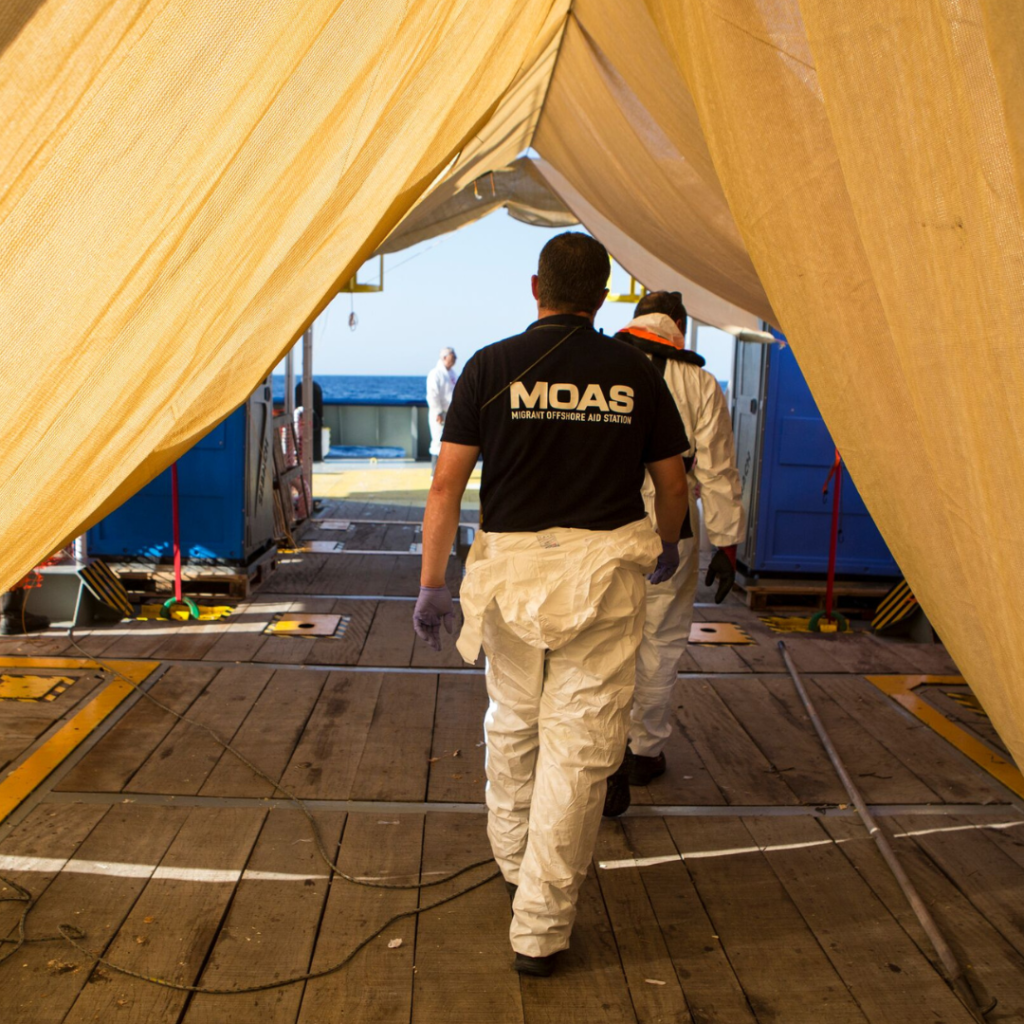World Humanitarian Day is celebrated every year on 19th August to honour humanitarian aid workers who work tirelessly in areas of crisis and conflict around the globe. This year, we celebrate all those Real-Life Heroes who have significantly contributed during the Covid-19 pandemic, risking their lives to help affected people and vulnerable communities, providing life-saving support and protection to people in need.
But, what does it mean to be a Hero? Who were the Real-Life Heroes in time of Covid? What does it take to help those in need? Surely the pandemic has upset our lives, changed our habits and questioned our certainties, but the answer to these questions is simple: everyone can be a humanitarian and anyone who has displayed solidarity is to be considered a Real-Life Hero. Find out what MOAS has done during the Covid-19 pandemic across the world, and discover about the volunteers who, with their constant support and help, have proved to be Real-Life Heroes.
The Mask Project in Bangladesh
In Bangladesh, in response to the pandemic crisis and being aware of the difficulties in implementing prevention measures against the virus in the context of Cox’s Bazar and in refugee camps, MOAS launched a new humanitarian initiative, the Mask Making Project. The Cox’s Bazar district of Bangladesh, which is home to over one million Rohingya refugees, was particularly susceptible to the spread of this virus due to limited sanitation infrastructure and overcrowded living conditions that made social distancing a challenge as a preventative measure. Considering the additional difficulties faced by the region in the face of this pandemic MOAS decided to contribute to the Covid-19 emergency response. Our heroes are the people in the field who found themselves isolated in the country and – despite the opportunity to return to their homeland – decided to stay and work hard to support the refugees and the local communities in need.
The Mask Making Project was launched to slow the spread of the virus through the overcrowded refugee camps, as well as to produce reusable facemasks to be distributed to front-line workers, local communities and Rohingya refugees. All our materials for the production of the masks were sourced from local businesses to further support the host community during these challenging and uncertain times.
For the production of reusable, washable cotton facemasks, MOAS involved local tailors and seamstresses, many of whom had lost their jobs due to Covid-19 outbreak: thanks to their tireless dedication, almost 900,000 masks have been produced and distributed, while the project was beneficial to the wider local community.
The #MOASMasksMalta project
In 2020, MOAS also established a mask production initiative in Malta, to expand the provision of protective measure for the numerous asylum seekers and refugees -the majority of whom lived in overcrowded reception centres- and for the vulnerable communities across the Island. Following MOAS’ appeal for the launch of the project, over 140 Malta-based volunteers have produced nearly 10,000 three-layers, reusable, cotton facemasks. At a time in which people were isolated, were working remotely and didn’t have the chance to meet with their friends and to engage with their communities, the volunteers who have assisted MOAS in sewing the masks recall with joy those moments. Esther, one of the seamstresses involved in the production of the masks, says: “During this period, I felt like I was doing something useful to support others in time of need and I thought of the many people around the world that were doing the same task through this intensely practical act of kindness. Through MOAS, vulnerable people were given a mask to protect themselves”.
All the facemasks produced have been distributed by organisations, such as the Agency for the Welfare of Asylum Seekers (AWAS) and Foodbank Lifeline Foundation, Migrant Commission and more. This project was also supported by local stakeholders including a local textile company, the Maltese taxi provider eCabs, as well as the brilliant fashion designer and couturier Luke Azzopardi who kindly created a YouTube tutorial on how to make MOAS masks for the team of volunteers.
It was an amazing example of how solidarity and unity can make a difference during harsh times.
Final considerations
During the Covid-19 pandemic, a wave of solidarity has broken across all countries with thousands of volunteers responding to numerous community needs: from helping the elderly, supporting migrants and children, to sewing facemasks for the vulnerable groups who couldn’t access the service.
These Real-Life Heroes have made the difference in a very difficult moment and MOAS will always be grateful for the huge support we have received.
If you are interested in the work of MOAS and our partners, please follow us on social media, sign up to our newsletter and share our content. You can also reach out to us any time via [email protected]. If you want to support our operations, please give what you can at www.moas.eu/donate.

